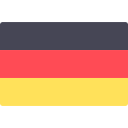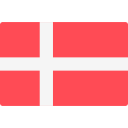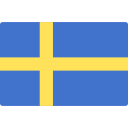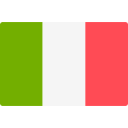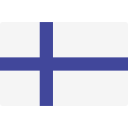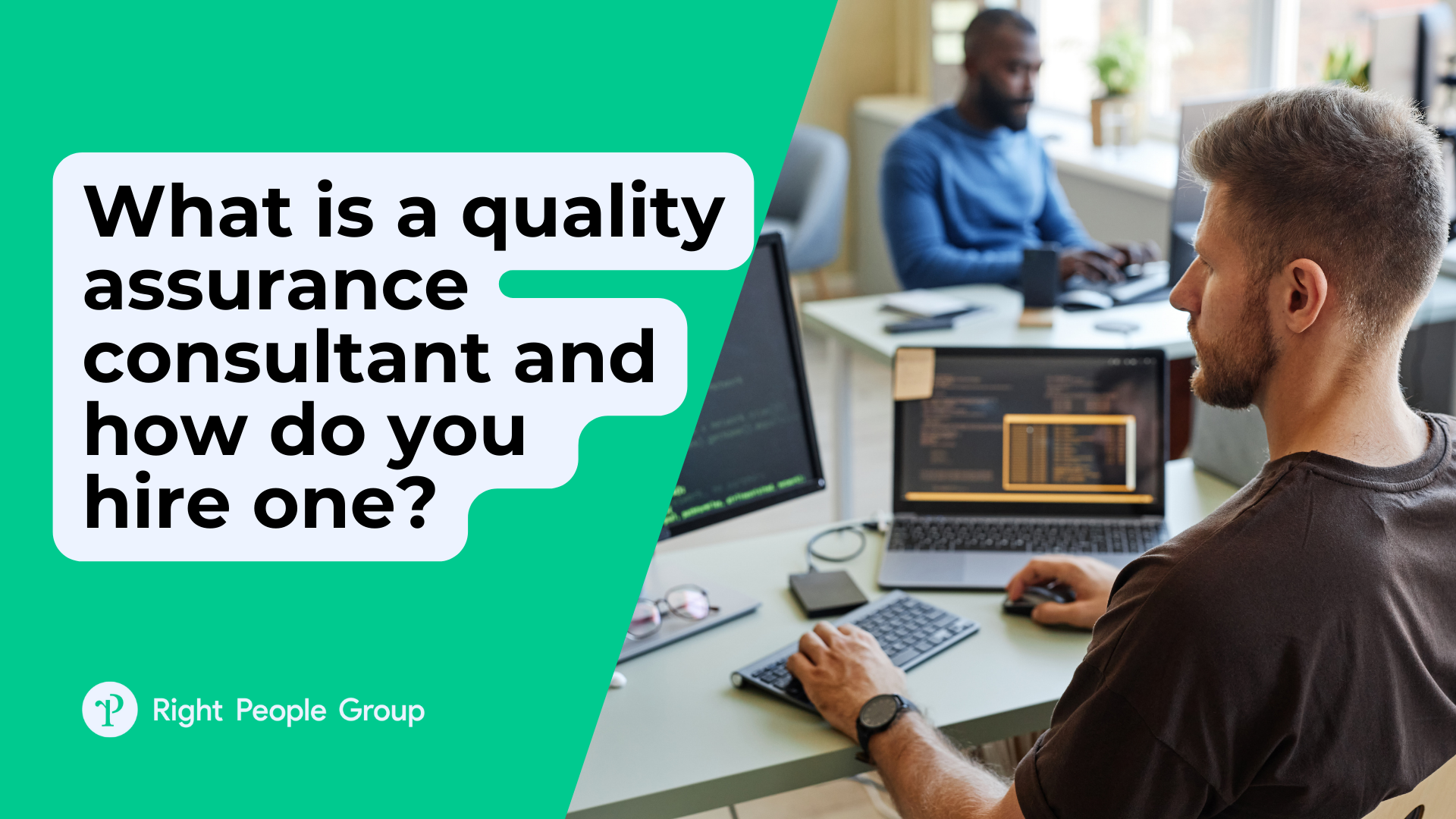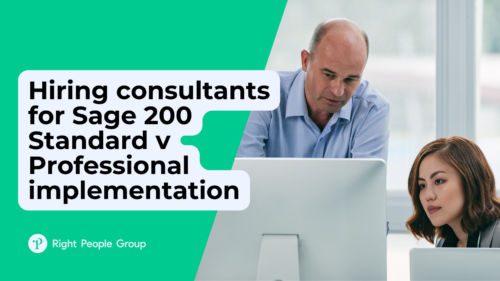This is because businesses are focusing more on high-quality products and happy customers. QA consultants help set up and manage systems to check product quality. This makes them really valuable for companies aiming to be top-notch and keep up with the latest in quality assurance.
But finding the right one can be tricky, as you need someone with the specific skills and experience that match your business needs. This guide will explain what a QA consultant does, the skills they need, and how to hire the right one for your company in a straightforward way.
Understanding the role of a quality assurance consultant
QA consultants play a significant role in helping businesses stay competitive by ensuring that their products meet the highest quality standards.
They bring expertise in identifying and fixing issues before they reach the customer, which can save a company from costly errors and maintain its reputation for quality.
Additionally, their knowledge of the latest QA practices and technologies helps businesses innovate and improve their products, keeping them ahead in a market where customers expect nothing but the best.
Key responsibilities
QA consultants have a range of responsibilities, each critical to ensuring product quality and customer satisfaction.
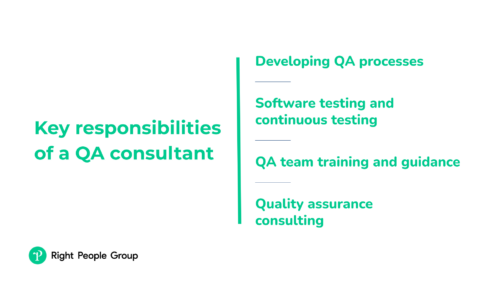
- Developing QA processes: QA consultants are tasked with creating and implementing comprehensive quality assurance processes. This involves developing a quality management system tailored to the company’s specific needs, ensuring that all aspects of product development adhere to quality standards.
- Software testing and continuous testing: They conduct thorough software testing to identify any defects or areas for improvement. This is not a one-time task but an ongoing process, where continuous testing becomes a core part of the overall QA strategy. This approach helps in the early detection of issues, ensuring that the final product is as flawless as possible.
- QA team training and guidance: A significant part of their role involves training and guiding the QA team. This includes imparting best practices, updating the team on new methodologies, and ensuring that the team is proficient in using various QA tools and techniques.
- QA consulting: They provide specialized consulting services to clients, focusing on enhancing software quality and refining development processes. This often involves analyzing existing processes, identifying areas for improvement, and implementing strategies that lead to better quality outcomes.
Importance in business
The role of a QA consultant is increasingly recognized as crucial for several key business aspects:
- Compliance and security: Ensuring that products or services comply with industry-specific standards and regulations is a key aspect of their role. This is not just about meeting legal requirements but also about safeguarding the security and integrity of the product.
- Customer satisfaction: QA consultants play a direct role in enhancing customer satisfaction by ensuring high-quality outputs. A product that meets and exceeds customer expectations is more likely to succeed in the market.
- Cost efficiency: One of the primary benefits of effective QA is the reduction of costs associated with errors and defects. By identifying and addressing these issues early in the development process, businesses can avoid expensive fixes later on, thereby enhancing overall market competitiveness.
Skills and qualifications of a quality assurance consultant
A QA consultant should combine a strong technical background with analytical and problem-solving skills. Their role is not just to identify issues but to provide practical solutions that enhance the overall quality of the software.
Skills
- Analytical skills: A QA consultant must possess strong analytical skills to evaluate software quality effectively. This involves scrutinizing data, identifying patterns, and understanding complex systems to ensure that software meets the required standards.
- Technical proficiency: They should have a comprehensive understanding of software testing methodologies, including both manual and automated testing. This includes knowledge of continuous testing practices, which are essential for agile development environments where software updates are frequent.
- Problem-solving skills: QA consultants are often faced with unique challenges and must be adept at devising creative solutions. This skill is crucial for addressing and resolving quality issues that arise during the development process.
- QA strategy development: The ability to develop and implement a comprehensive QA strategy is key. This involves planning, setting quality goals, determining testing processes, and ensuring that all team members are aligned with these standards.
Qualifications
In Quality Assurance (QA) consulting, certifications and practical experience are widely recognized as key indicators of a consultant’s expertise and ability to deliver effective results.
When hiring QA consultants in Europe, prioritizing specific certifications can be a strategic approach to finding professionals with the right expertise and knowledge. Here are some key certifications relevant to the European region:
- ISTQB Certified Tester: The International Software Testing Qualifications Board (ISTQB) certification is globally recognized and highly valued in Europe. It offers a structured program with different levels of certification, ensuring a comprehensive understanding of software testing, which is crucial for QA consultants.
- IREB Certified Professional for Requirements Engineering (CPRE): While it focuses on requirements engineering, this certification is important for QA consultants in Europe. It ensures that the consultant has the skills to understand and analyze project requirements, a fundamental aspect of quality assurance.
- European Software Institute – Center for Software Process Improvement (ESI-CSP): This certification is specific to software process improvement, a key area in QA. It is tailored to European standards and practices, making it highly relevant for consultants working in this region.
- Certified Software Quality Engineer (CSQE) by ASQ: Although ASQ is an international organization, its CSQE certification is well-regarded in Europe. It demonstrates a comprehensive understanding of software quality development and implementation, aligning with the high standards expected in European markets.
- ISO 9001:2015 Lead Auditor: For QA consultants involved in quality management systems, being a certified lead auditor in ISO 9001:2015 is a significant credential. It shows expertise in the globally recognized ISO standards, which are integral to quality management practices in Europe.
Experience
Hands-on experience in software testing, understanding various quality management systems, and familiarity with the latest tools and technologies in the field should be a prioity. Experience in a specific industry can also be beneficial, as it provides insight into industry-specific quality standards and challenges.
Hiring a quality assurance consultant
To find the right QA consultant, you first need to understand your specific requirements. Start by defining the scope of your project: What are its size, complexity, and duration?
Next, consider the particularities of your industry. Different sectors have unique quality standards and challenges, so your consultant should be familiar with these.
Finally, think about what your existing QA team needs. Do they require someone with specialized skills or experience in certain QA practices or tools?
Sourcing candidates
Sourcing candidates for a QA consultant requires exploring various avenues to find the best match for your needs. This includes looking into specialized platforms, consulting companies, and leveraging referrals.
Explore specialized platforms and consulting companies
Platforms like Onsiter and Right People Group specialize in connecting businesses with professional consultants.
Onsiter offers a broad network of highly experienced business and IT consultants, including QA experts. This means you’re liely to be able to find a consultant with the right sills and level of experience that you’re looking for. This platform is particularly useful if you’re looking for consultants with specific technical expertise or industry knowledge.

Right People Group, meanwhile, excels in providing a tailored approach to your hiring needs. They focus on understanding your project’s specific requirements and then match you with QA consultants who have the precise skills and experience you’re looking for. This personalized service ensures a higher likelihood of finding a consultant who can seamlessly integrate into your project.
Both Onsiter and Right People Group simplify the hiring process, making it more efficient to find qualified QA consultants.
Consulting firms
When searching for a QA consultant, consider reaching out to firms that focus on QA consulting. These companies usually have a team of consultants who know a lot about different industries and the best ways to do quality assurance.
Onsiter is a platform that connects businesses with independent consultants, including those specializing in quality assurance (QA). While Onsiter itself is not a consulting firm, it serves as a marketplace where companies can find and hire individual consultants for specific projects.
This includes access to consultants who may have affiliations with consulting firms or operate independently.
Referrals
Ask people you work with or others in your industry if they know any good QA consultants.
Often, getting a recommendation from someone you trust is a great way to find a consultant. If they’ve worked well with others, there’s a good chance they’ll do a good job for you too.
Referrals are valuable because they come with a sort of “stamp of approval” from someone who has already seen the consultant’s work.
Evaluating candidates
When it comes to evaluating potential QA consultants, look beyond their resume. Assess their technical skills, experience, and much more to ensure they’re the right fit for your project.
Here’s a breakdown of key areas to focus on during the evaluation process:
Technical assessment
Test their knowledge in important areas like how good they are at checking software quality, their understanding of QA practices, and how they handle continuous testing.
You could ask them to do a practical test, like a real-world problem they have to solve, or talk through some ‘what-if’ scenarios to see how they think and solve problems.
QA consulting experience
Take a close look at the work they’ve done before. What kind of projects have they worked on? More importantly, how have they made things better in their past jobs?
Try to find specific stories or examples where they made a real difference, like improving how good a product is or making things run more smoothly and efficiently. This gives you a clearer picture of what they might be able to do for your project.
Communication skills
A QA consultant needs to clearly explain technical issues to non-technical team members and effectively communicate with developers about any problems found during testing. During the interview, pay attention to how they explain complex concepts and whether they can express their ideas clearly and concisely.
Adaptability
The tech world changes fast, and so do QA practices. A good QA consultant should be adaptable and open to learning new technologies and methodologies. Ask about times they’ve had to adapt to new tools or approaches and how they managed the transition.
Cultural fit
The consultant must fit well with your team’s culture. They should be able to work collaboratively and mesh with your company’s values and work style. During the interview, ask questions that give you insight into their work ethic, teamwork, and values.
Client feedback
If possible, check references or reviews from their previous clients. This can give you an idea of their reliability, work quality, and how satisfied others were with their work.
Contract and compensation
- Action plan: Before finalizing the hire, outline a clear action plan with specific objectives and milestones. This ensures both parties are aligned on what needs to be achieved. Discuss and agree upon the terms of their engagement, including duration, key deliverables, and the metrics for success.
- Compensation: Determine a fair compensation structure based on the consultant’s expertise, market rates, and the complexity of the project. This could be a fixed fee for the project or an hourly/daily rate.
Best practices in working with a QA consultant
To get the most out of your collaboration with a QA consultant, it’s important to follow some best practices. These practices ensure that both you and the consultant are on the same page and working towards common goals.
Here are some key strategies to consider:
Set clear objectives
Effective collaboration with a QA consultant requires specific and measurable goals. Define what you aim to achieve in software testing, quality improvements, and compliance. Clear objectives guide the consultant, ensuring alignment with your business goals. This approach helps in focusing efforts and measuring success accurately.
Provide necessary resources
The success of QA practices heavily depends on the availability of appropriate tools and resources. Ensure your QA consultant has access to the latest software and tools required for thorough testing and analysis.
This includes providing them with relevant project documentation, customer feedback, and other necessary information. Adequate resources enable the consultant to work efficiently and deliver more impactful results.
Feedback and improvement
Encouraging ongoing feedback and a culture of continuous improvement is important in your engagement with a QA consultant. Regular reviews of their work and outcomes are important for assessing progress.
Encourage the consultant to offer suggestions for enhancing QA processes. This approach fosters innovation and adaptability in your QA strategies, helping to maintain high-quality standards in an ever-evolving business environment.
Conclusion
Hiring the right QA consultant is a key step for any business focused on quality and customer satisfaction. These consultants bring a mix of expert skills and fresh perspectives to the table, helping companies stay on top of quality standards and market trends. Choosing the right QA consultant is a strategic move towards future-proofing your products and services. This guide aims to make that process clearer and more straightforward, ensuring businesses can find and work effectively with the right QA expertise.

